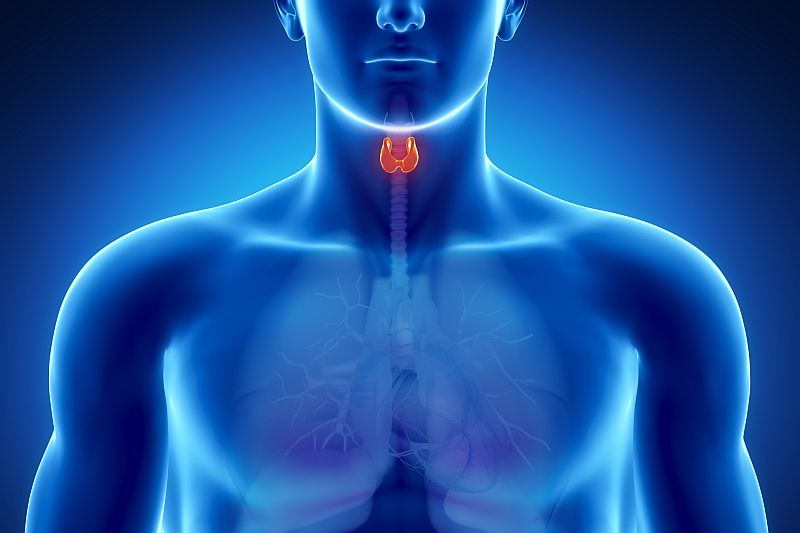About what is a goitre
You may have noticed some swelling at the base of your throat. As this could be something serious, it is important to get it checked, but the most likely case is that this is a goitre. A goitre is a swollen, enlarged thyroid gland – the gland that controls your metabolism. The goitre itself is not dangerous, but whether treatment is required lies within the diagnosis of its’ underlying cause or how it affects daily living.
Possible causes
The most common cause of goitre is iodine deficiency. Iodine deficiency is rarely evident in developed countries, as iodised salt ensure that individuals obtain enough in their diet – sometimes even too much. Other common causes of non-iodine induced goitre are:
- Benign Thyroid Nodules: These solid or fluid-filled lumps can form on one or both sides of the thyroid. They are not harmful or dangerous, and your thyroid is likely to be functioning normally.
- Pregnancy: Most people are familiar with swollen feet as a symptom of pregnancy, but pregnancy hormones can also cause your thyroid to swell. Again, your thyroid is likely to be functioning fine, and the swelling often goes down after pregnancy.
- Thyroid disorders: Autoimmune disorders can attack your thyroid and cause it to work too much or too little. If this is the cause of goitre, other symptoms such as hyperactivity or lethargy will be experienced.
- Thyroid cancer: This is by far the least common cause, much less common than the benign nodules. Regardless, it is significantly important to have a goitre checked by a specialist, just in case.
Possible problems
Often the swelling of the thyroid itself is often not problematic. However, very large goitres, generally caused by multiple benign nodules, may cause some symptoms including coughing, hoarseness, or impeded swallowing or breathing. This is due to the pressure that the swollen gland is putting on your esophagus and windpipe. If these are the only symptoms your goitre may not be dangerous, but it can still be uncomfortable and you may want to seek treatment.
Potential treatments
These depend on the cause and the severity of the goitre. A small goitre with a normally functioning thyroid will likely need no treatment; alternatively, a cancer treatment plan may involve more than just your thyroid. The main treatments for handling just your thyroid are either medicine or surgery.
Medications can help reduce your goitre if caused by a thyroid disorder such as hypo- or hyperthyroidism. You would also require these medications to control the other symptoms of your thyroid disorder. Sometimes normalising your thyroid hormone alone can decrease the size of your goitre.
Surgery will need to be performed if you have cancer in your thyroid or the presence of benign nodes causing a goitre that impedes the oesophagus or windpipe. This surgery will involve removing part or all of or your thyroid. Depending on the surgery needed you may be required to take thyroid hormone replacement medication.
Goitre is not cause for panic, but you should get it looked at as soon as possible after you notice it.
If you have questions or concerns about a goitre contact your local doctor, who will arrange for you to see a thyroid surgeon.

